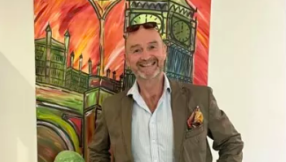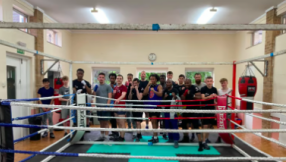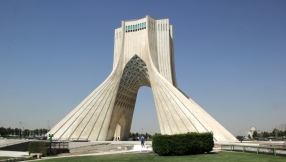Rev Rose Hudson-Wilkin on Slavery, Modern Slavery and the Church of England
She shared her thoughts with Christian Today on the Church of England and slavery of the past and present.
CT: Rev Rose, you are going to join the Walk of Witness to mark the 200th anniversary of the abolition of the slave trade on Saturday. Why did you feel it was necessary for you to join in this walk?
RR: I think it was important for us to organise this walk because it was the right time for us to acknowledge what had taken place. There has always been a shroud of secrecy just like those in Germany who said the Holocaust didn't happen. There's been this shroud over the transatlantic slave trade and the havoc it wreaked on black families.
But this is not a black event or a black thing because, whether white people want to acknowledge it or not, it has also impacted on their lives. You cannot dehumanise one group and not be dehumanised in the process itself.
CT: So you want to see everyone rallying over this issue?
RR: Absolutely.
CT: Are you quite impressed by the way the churches have come together for this walk, because it really has crossed the denominations?
RR: Oh yes, it is ecumenical. And although the leadership of it has come from the Church of England the whole church across the denominations has taken ownership of it as an ecumenical venture.
CT: What do you think it is about the slavery issue that has united the churches so passionately?
RR: I believe that as a church we failed abysmally way back then at being the voice of the voiceless - because that is what they were then. They had no voice and, instead of standing on their side and saying 'this is not acceptable' and 'this should not happen', the church joined in.
CT: Do you think the church carries a guilt complex because of that?
RR: I hope it doesn't carry guilt because guilt can sometimes be a useless emotion that can pin you down and leave you wallowing. I hope that the church feels ashamed. I am a member of the Church of England and I am ashamed that the church that I am a part of perpetrated such a crime. And that is why I feel so strongly that I need to say sorry in my heart, and openly, by acknowledging it through the walk. I need to say sorry to my brothers and sisters that were dehumanised, murdered, killed, abused.
CT: What lessons do you want the Church of England to take from its involvement in the slave trade?
RR: I think the lesson we need to hang onto is that what we did was wrong, we repent, we are sorry we did this, and we are going to do everything in our power to ensure that this does not happen in our society, in our world, again. We need to be vigilant.
We have been looking at slavery in our Lenten study group and have been using the London Diocese's resource, 'Take the shackles off my feet so I can dance'.
We need to look not only back but look today. Where are there signs of modern day forms of slavery? What can we do about that? Let's not rest and think oh it's not happening to us. Oh it's happening to them. It has everything to do with us. We share a common humanity.
CT: You have touched on modern slavery. What does the word slavery mean to you today?
RR: Slavery to me is about a human being having no other choice but to do something. Children put in sweatshops and forced to work; women forced to be sex slaves or forced to work for nothing; children abducted to be child soldiers; these are all forms of slavery today.
When our Government takes jobs from this country and takes them to Africa and Asia and South America and pays people peanuts to do those jobs that is a form of slavery, I believe.
CT: What about in the Diocese of London; are you witnessing new forms of slavery at the grassroots level in your diocese?
I think we have to look out for these things where we see them. We have to look out for signs of women in the community being brutalised - or men. It doesn't matter which side it is on. We have to speak out.
CT: A lot of the anti-modern day slavery work this year has focused on the issue of human trafficking, especially sex trafficking. The head of the African and Caribbean Evangelical Alliance has highlighted racism as one of the legacies of the slave trade.
RR: Racism is a legacy of the slave trade. When people turn to me and say, 'oh let's not talk about it,' 'it happened such a long time ago,' 'we don't need to talk about it now,' I am alarmed. And the reason why I am alarmed is that they actually do not understand that the reason why racism exists today is because it is a direct legacy of slavery.
The reason why Rosa Parks sat down on that bus and refused to get up and there was the boycott of the bus is a direct legacy of slavery. The civil rights movement in America? A direct legacy of slavery. It wasn't that long ago, it was in the seventies, when children were being bussed into schools in America in order to break the segregation. And we saw people throwing things at them and shouting. That is a direct legacy of slavery because over the years we have believed the lie that black people are inferior. And we have grown up treating them like that.
CT: And you feel that is still prevalent today?
RR: Oh yes absolutely. We haven't knocked racism on the head. That is why my committee still exists, the Committee for Minority Ethnic Anglican Concerns.
CT: Do you think racism has been overlooked as one of the slave trade's surviving legacies?
RR: It's a word people don't like to talk about, sadly, but it is the reality.
CT: So you think your fellow members of the Church of England understand how deeply racism is rooted in society still?
RR: No, they don't all. Some do. But they don't all. That is why my committee exists. It's because they don't understand it. When they think of black Anglicans' concerns or minority ethnic concerns, they think, 'oh what is this about, is this a separate group?' No, it's not a separate group. We want them to make room for us to take up leadership within the Church.
CT: So you want to see the Church of England welcome more members of the black community?
RR: Yes, but we don't want them to 'welcome' because 'welcome' implies there is a host and we are visitors. We are not visitors. We are part of the Church. So we just simply want the Church and its leadership at every level to make room. When we have that place of equality we can go back to a level playing field but we ain't got the level playing field yet.
CT: You said people have said we shouldn't talk about the slave trade. So you have encountered this attitude frequently?
RR: Absolutely. When I've gone on the radio to talk about slavery, that keeps coming back to me, people calling in and saying, 'Oh why do we need to talk about it, it happened such a long time ago. Let's forget it.' No, let's not forget it. Because if we forget it, it will keep happening.
CT: The Church of England has offered a full apology for its complicity in the slave trade. Tony Blair has so far stopped short of offering a full apology. Do you think that a formal apology for the slave trade from the Government is necessary?
RR: If it doesn't come I won't be upset or alarmed. It needs to come voluntarily. One should not be press-ganged into saying it. Once the facts have been laid out in front of you then with your heart you need to know it is the right thing to say. If somebody has to beg and plead with you to do it then forget it, don't bother doing it, because it becomes meaningless then.
CT: How do you want to see the Church of England engage with the legacies of slavery and modern slavery like trafficking, racism, poverty - beyond this weekend, beyond this walk, beyond 2007?
I want the Church to speak out. I really do want the Church to speak out. And In speaking out I want the Church to say and to know that it must be the voice.
The Old Testament and the New Testament are literally littered with verses that say that we have got to care for the vulnerable. The women, the orphans, the widows, all those who are not able to help themselves. We have got to care for them and speak for them and listen.
And what does the Church do? The Church finds itself caught up in arguments about homosexuality when there are far fewer mentions of it in the Bible.
CT: Do you think the Church of England has been hindered in supporting the vulnerable and poor because of these debates on homosexuality?
RR: Oh yes. We've taken our eyes off the mark. It's crazy.
If you think of the abuse going on in Africa, the child soldiers, Aids, and all my brothers there can talk about is sex?! For goodness sake!
CT: So that's something you want to see come to an end?
Absolutely. That obsession must cease. And let's get our eyes back where they should be.













